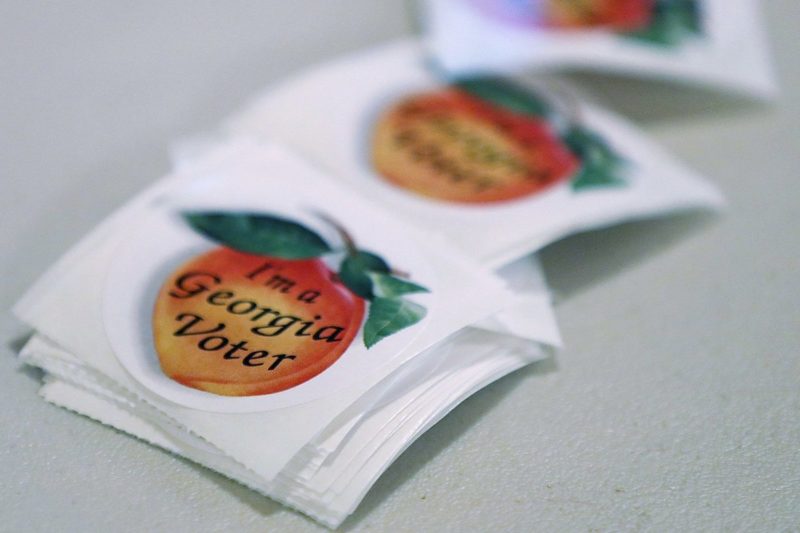Georgia Election Officials Change Course on Voter Roll Purge Process
More than 380,000 state residents had received an official notice saying they could be purged from Georgia's voter rolls.

Georgia election officials confirmed last week that the state will reverse course on parts of its process of purging citizens from voter rolls.
The Atlanta Journal-Constitution reported Friday that “Georgia will no longer give those voters [who had moved within the county they are registered to vote in] a 30-day deadline to respond or be declared ‘inactive,’ and it will immediately recognize as active nearly half” of those who had received notices in July to confirm their addresses.
After filing an open records request with the state of Georgia, Rewire learned last month that more than 380,000 state residents had received an official notice from their local board of elections that they must confirm their voter registration based on having filed a change of address request. If a resident fails to do so, they risk being classified as an “inactive” voter, the first step in removing a voter from the rolls. Those classified as “inactive” are still able to vote.
“We reviewed the process and determined that these revisions would be in the best interest of all Georgia voters,” Candice Broce, press secretary for the Georgia Secretary of State’s Office, told the Atlanta Journal-Constitution.
The American Civil Liberties Union (ACLU) of Georgia filed a lawsuit against Fulton County in late July on behalf of Stacey Hopkins, a voter who had received one of the notices.
A letter obtained by Rewire from Sean Young, legal director of the ACLU of Georgia, to Secretary of State Brian Kemp and Fulton County Board of Registration and Elections Chairperson Mary Carole Cooney, alleged that the county had violated the National Voter Registration Act of 1993 by sending the notices to those who had moved within the same county.
“Sending out confusing and intimidating purge notices in an irresponsible and unlawful manner has the effect, if not the purpose, of making it harder for Georgia voters of all political parties—particularly voters with less income or educational background—to exercise their fundamental right to vote,” Young said in the letter.
Young told the Atlanta Journal-Constitution on Friday that he needed more details on the state’s decision and “any written details about how they plan to undo their damage to Georgia’s electoral integrity.” He said what state officials “appear to have proposed is merely the first step toward compliance.”

